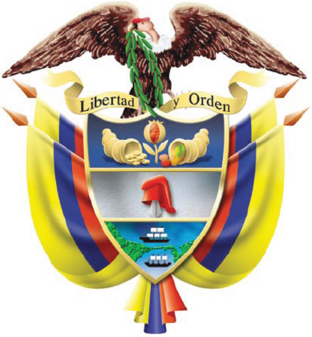constitutional and on February 11, 2018, the Constitutional Court sent the JEP Bill to the President of the Congress and the President of the Republic for their signatures. On March 10, 2019, President Duque objected to six of the 159 articles of the JEP Bill. On April 8 and May 1, 2019, the Chamber of Representatives and the Senate, respectively, rejected the objections. On June 6, 2019, President Duque enacted the regulatory framework of the JEP into law. As of May 15, 2020, 12,529 Colombians were submitted to the JEP. Of that group, 9,737 were members of the FARC, 2,680 were members of the military, 100 were agents of the state and 12 were social protesters.
The JEP Peace Court’s division on Recognition of Truth and Responsibility has issued guidelines on proper sanctions and on works and activities with restorative-reparative content. The sanctions outlined in the guidelines will be applied to those who committed the most serious crimes of the armed conflict and will last from five to eight years. Participants who were not determined to have committed serious crimes will also be subject to sanctions for a period of two to five years. The sanctions require the carrying out of works and activities with restorative-repairing content and involve an effective restriction of freedoms and rights, such as freedom of residence and movement.
Corruption Investigations
On January 12, 2017, theFiscalia General de la Nación initiated a corruption investigation into the activities of the Brazilian construction firm Odebrecht. While the investigation is still ongoing, to date, five people have been convicted, including two former public officials. On September 14, 2018, theSuperintendencia de Industria y Comercio initiated a corruption investigation into Odebrecht’s actions in relation to the adjudication of theRuta del Sol II highway concession. On December 13, 2018, a local court disqualified Odebrecht from bidding and contracting with the Republic for a period of 10 years.
On August 6, 2019, an arbitral tribunal ruled in favor of the Colombian Infrastructure Agency (“ANI”) in a claim filed by CONSOL, a construction consortium in which Odebrecht owns a 62% stake. The arbitral tribunal decided that ANI only needed to pay CONSOL Ps. 211 billion in construction costs and not the Ps. 2.3 trillion that were claimed to be due. On November 14, 2019, theSuperintendencia de Sociedades ordered the judicial liquidation ofConstructora Norberto Odebrecht de Colombia S.A.S., a company linked to Odebrecht, due to, among other reasons, the company’s default on its financial obligations and the fact that its liabilities were 484% of its assets.
Internal Security
The level of criminal activity in the Republic has generally decreased over the past two decades. In particular, violence by guerilla organizations has decreased. Incidents of homicide decreased from 12,782 in 2015 to 12,402 in 2016 and 12,237 in 2017. In 2018 and 2019 there were 12,923 and 12,925 homicides, respectively. Incidents of kidnapping decreased from 213 in 2015 to 207 in 2016, 195 in 2017, 176 in 2018 and 92 in 2019. Incidents of terrorism decreased from 443 in 2015 to 224 in 2016 and 123 in 2017. In 2018 and 2019, the number of terrorism incidents increased, with 152 and 209 registered cases, respectively. From January to April 2020, homicides decreased by 15% from 4,194 to 3,567 compared to the same period in 2019. From January to April 2020, kidnappings decreased by 46% from 37 to 20 compared to the same period in 2019, and incidents of terrorism decreased by 20% from 85 to 68 compared to the same period in 2019.
Over the past two decades, Colombia has implemented various measures to address the violence associated with the guerilla movements, including bilateral negotiations, enactment of legislation to protect the victims of armed conflicts, increased investment and economic development in conflict areas and the introduction of social, political and economic reforms designed to improve living conditions, increase access to the political process and equalize the distribution of income.
On August 29, 2019, Ivan Marquez and Jesus Santrich (“Santrich”), former senior leaders of the FARC, announced that they would once again take up arms and return to conflict. On October 9, 2019, the FARC party,
S-17

